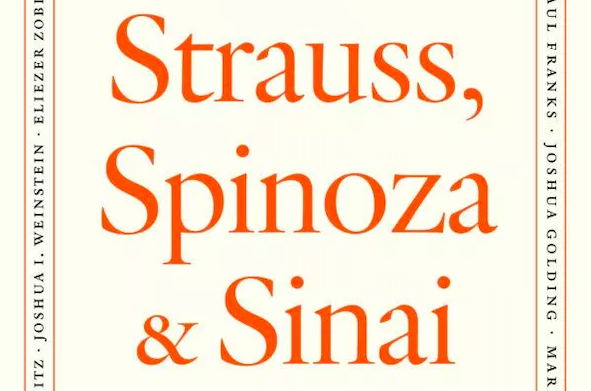R. Emanuel Feldman is the rabbi emeritus of the Beth Jacob shul in Atlanta, Georgia, author of 11 books, and past editor-in-chief of Tradition Magazine. The world of Orthodox Jewish popular scholarship is full of highly intelligent writing. Deeply researched articles and lucid writing go a long way in this realm, influenced as this genre was by traditional Torah scholarship, but humor, warmth, and personality can sometimes be missing from the form.
Enter R. Emanuel Feldman. R. Feldman’s writing is marked by a sharp intelligence and a rare personality. We put together our favorite articles by R. Feldman from his time in Tradition for you, for aspiring writers and thinkers about Jewish experience alike. We include a snapshot of his words, so pick your favorite and get reading.
Listen to our conversation with R. Feldman about his life in Jewish letters here.
1. “Tefillin in a Brown Paper Bag”
In this timeless piece, R. Feldman excoriates the state of contemporary Orthodox Jewish writing, articulating well the need for a more sophisticated language for his community’s dialogue.
It is hard to imagine that any thinking individual can be persuaded of the depths of Torah when—quite beyond grating misusages such as “being that” instead of “since”; “comes to tell us” instead of “informs us”; “brings down” instead of “cites”—the ideas of Torah are presented in jejune and puerile language. This is a pity, for Torah is precious enough to deserve elegance, grace, sophistication, and precision. After all, we don’t wrap our tefillin in brown paper bags, or bind our sifrei Torah with coarse, ugly ropes. A world-view which is inadequately articulated not only fails to communicate, but repels those whom it would reach.
Purim shpiels have a timeless place in our heart. In the often-dry world of Torah scholarship, the domain of Purim literature remains unparalleled in its sheer creativity and irreverence. This trip of an article tours through the imagined response of Orthodox publishers to the messianic impulse. For a taste, enjoy this:
Journal of Halacha and Contemporary Society: Meiri in his comment to Baba Kama 51a, reacting to the Tosefos in Baba Kama 51a (Ioc cit), in which Tosefos takes issue with Rashi’s comment on Devarim 14:73 in which the Ramban takes strong issue with Rashi citing Onkelos in Bereshis 24:9 as a support, renders the entire issue moot by pointing to a taos hadefus supported by the Rosh’s emendation to the locutionary error discovered by the Gaon in his classic dispute with the Baal Hatanya who, far from disagreeing with the original premise, in fact lends credence to Rambam’s reading of the annotated version of the text as pointed out so perceptively by the Raavad in his gloss to the Mishneh Torah.
This essay is the kind of piece that you probably know without knowing; reading it awakens long-dormant memories. This piece holds a tension, reminding us of the beauty of a less-learned knowledge of liturgy, but also giving us reason to celebrate the possibilities for greater learning for so many in today’s world.
She did not know the subtle differences between faith and trust and belief, and her prayer calendar was a seamless web which did not distinguish between one kind of holiness and the next, and she thanked God for the miracle of the Hanuka oil every Shabbat, and ushered in the new moon every week of the year, but she loved God, and her greatest joy was to engage in conversation with Him.
A personal favorite to the writer of these words, this piece is a loving meditation on time, eternity, and clocks in shuls. If you skip the rest, check this one out. You’ll thank me later.
But despite the full realization that the world-to-come is the only timeless realm, it nevertheless seems to me that it would be felicitous if, in the one place on this earth which is an adumbration of that realm—the house of God—one would not be confronted by that relentlessly ticking reminder of this world’s temporality. That is why I still find myself wistfully looking for a clockless shul.
To read more of such thinking, check out the Tradition archives, where much of R. Feldman’s past writings can be found: https://traditiononline.org/archives/.





































